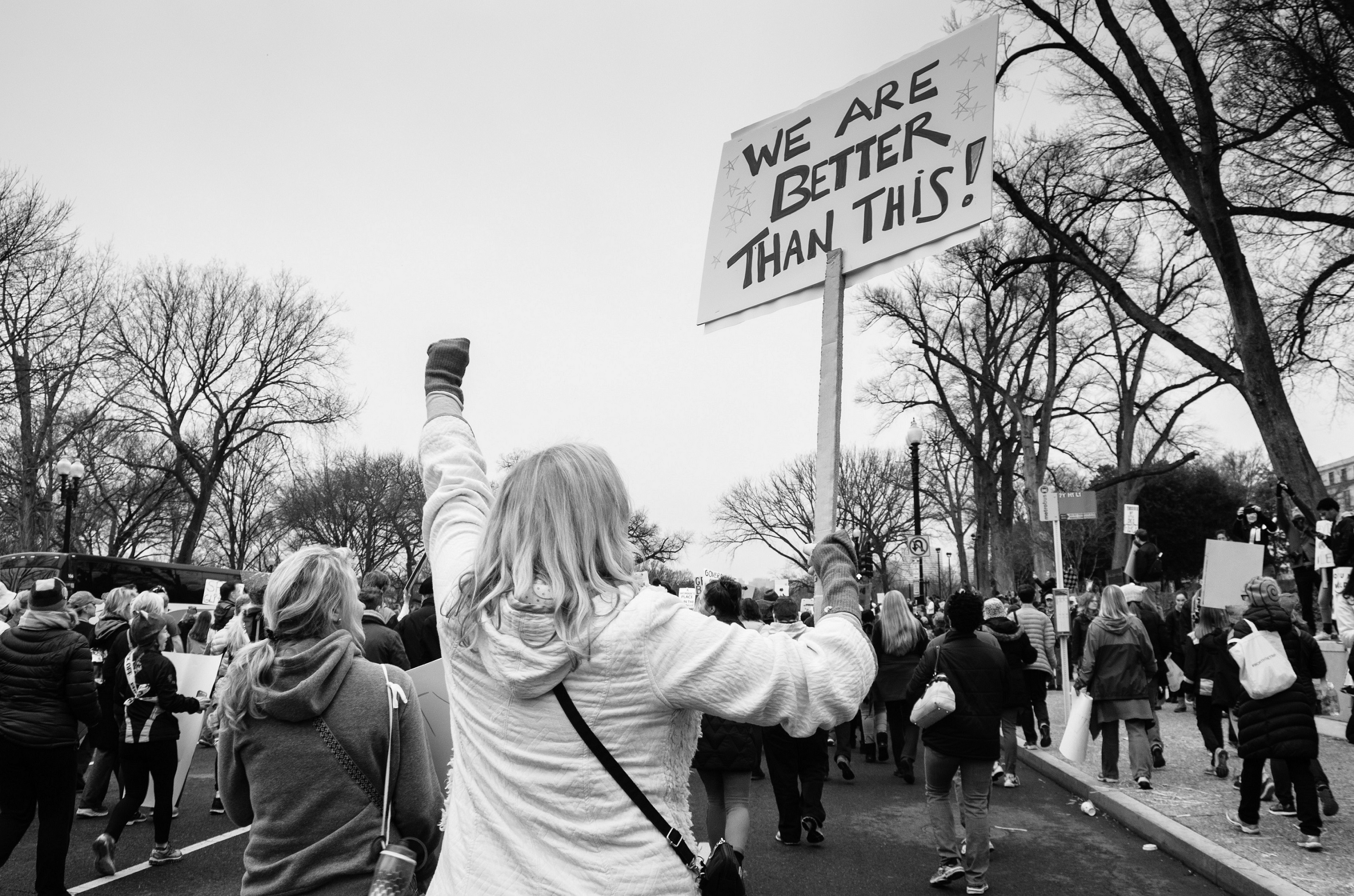
Just so we’re clear, women are:
- Old
- Fat
- Thin
- Religious
- Hairy
- Black
- People with periods
- People without periods
- Poor
- People of colour
- White
- Deaf
- Blind
- Beautiful
If you see where I’m going with this: my point is that women are not a homogenous group. Our diverse characteristics within our identity are what makes us unique within our life experiences and complicates our positionality within society. In other words, our intersectionality determines the unique oppression we as people experience (thanks Kimberlé Crenshaw). Though intersectional feminism has grown significantly in the last few years, if there’s one thing I learned from “The Art of Resistance” International Women’s Day event at Seeds of Change, it is that we as feminists, students of Trent University, and the community of Peterborough, need to do a much better job at considering these intersections.
“The Art of Resistance” event coordinated by the Kawartha World Issues Centre (KWIC) and Kawartha Sexual Assault Centre (KSAC) took a tone I was not expecting. As an event for Women’s Day and a promotional poster which depicted a powerful raised fist grasping a paintbrush, I was expecting words of encouragement and recognition for the many ways women have resisted and created change within the community. Turns out, we are not deserving of this applause. Not to imply that I don’t believe there hasn’t been great work done within the community because I do. Activist groups such as The Raging Grannies who I’m a personal fan of were present at the event. This group challenges ageism and promotes feminism and environmental awareness and does so with jazzy musical numbers and humorous messaging. The type of innovative activism I believe we should applaud in Peterborough, however what was pointed out more clearly at the event was the lack of visibility and support for other women in the community. The two greatest critiques resonating with myself being the many ways Peterborough and Trent marginalize black women and women of colour, as well as the lack of recognition for trans women within the community.
For myself, as a white, cisgender woman, I believe conversations of the ways in which feminism and activism in the community has been falling short for other women in ways that I don’t personally experience are among the most important. Though I don’t always believe “calling out” tactics are the most productive, I know anger is a powerful motivator of change. And Niambi Leigh and Shanese Steele had a lot to be angry about as panelists for the event. They brought to the attention of the audience and even the organizers the way racism has threatened their lives and erased their presence and voice within the community. They also called out the failing of the organizers to include trans women within the panelist discussion. Although I don’t find it useful to speak about specifics on their behalf, the message taken away within my experience attending the event is the importance of recognition. That is, to recognize the ways a singular view of feminism and activism in the community has fallen short of its objectives to include and recognize everyone. It is also important to recognize the sometimes uncomfortable yet necessary conversations taking place, because, although it is uncomfortable to admit we’ve harmed someone or made a mistake, it is invaluable to the way we move forward.
A disappointing element to the event at Seeds of Change in my opinion, came as I watched more and more of the crowd disperse when conversations started to become more direct, personal and heated. An unfortunate circumstance as the individuals leaving, or those that didn’t attend at all, are the ones who need to hear these messages of anger the most.
As such, in order to respect the knowledge Niambi Leigh, Shanese Steele and Monica Maye, the panelists of “The Art of Resistance” it is important not to leave these lessons within this event space. Issues of racism, sexism, homophobia, transphobia, fatphobia, ableism and so forth shouldn’t only be considered during International Women’s Day. They should be continuing conversations we take forward in our everyday lives, considering not only the obstacles we face in our own lives, but recognizing the oppression of others as well. To reference Niambi Leigh in her response to an audience member who asked for future feminist advice, education is the most important. Listening to the stories of those who voice experiences of discrimination and oppression and educating ourselves on what it is we as feminists, students or friends can do in support.
